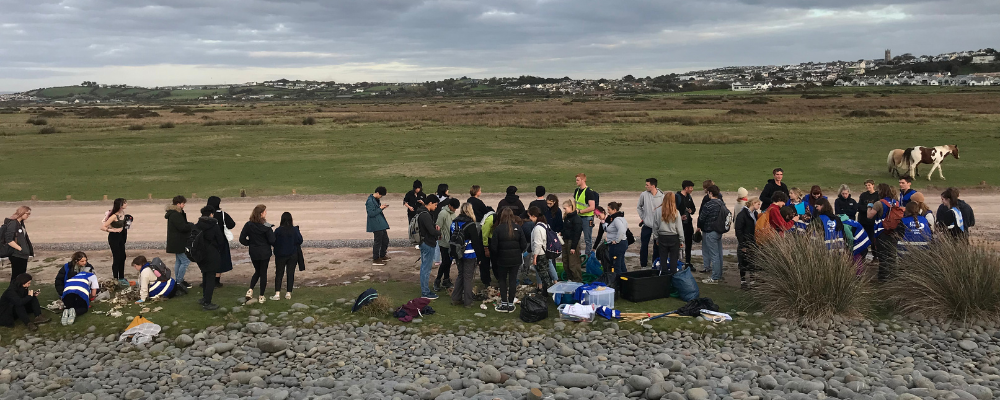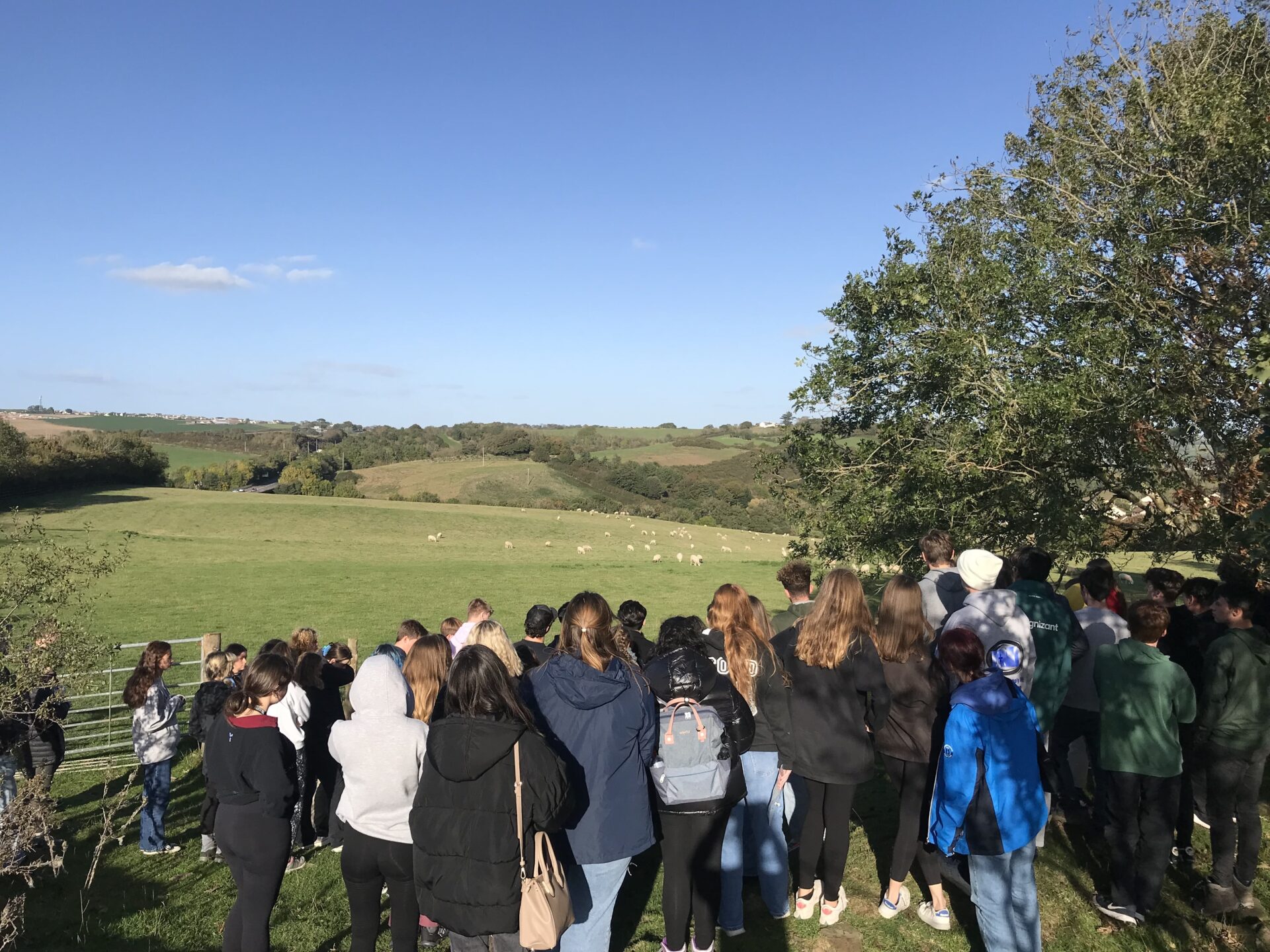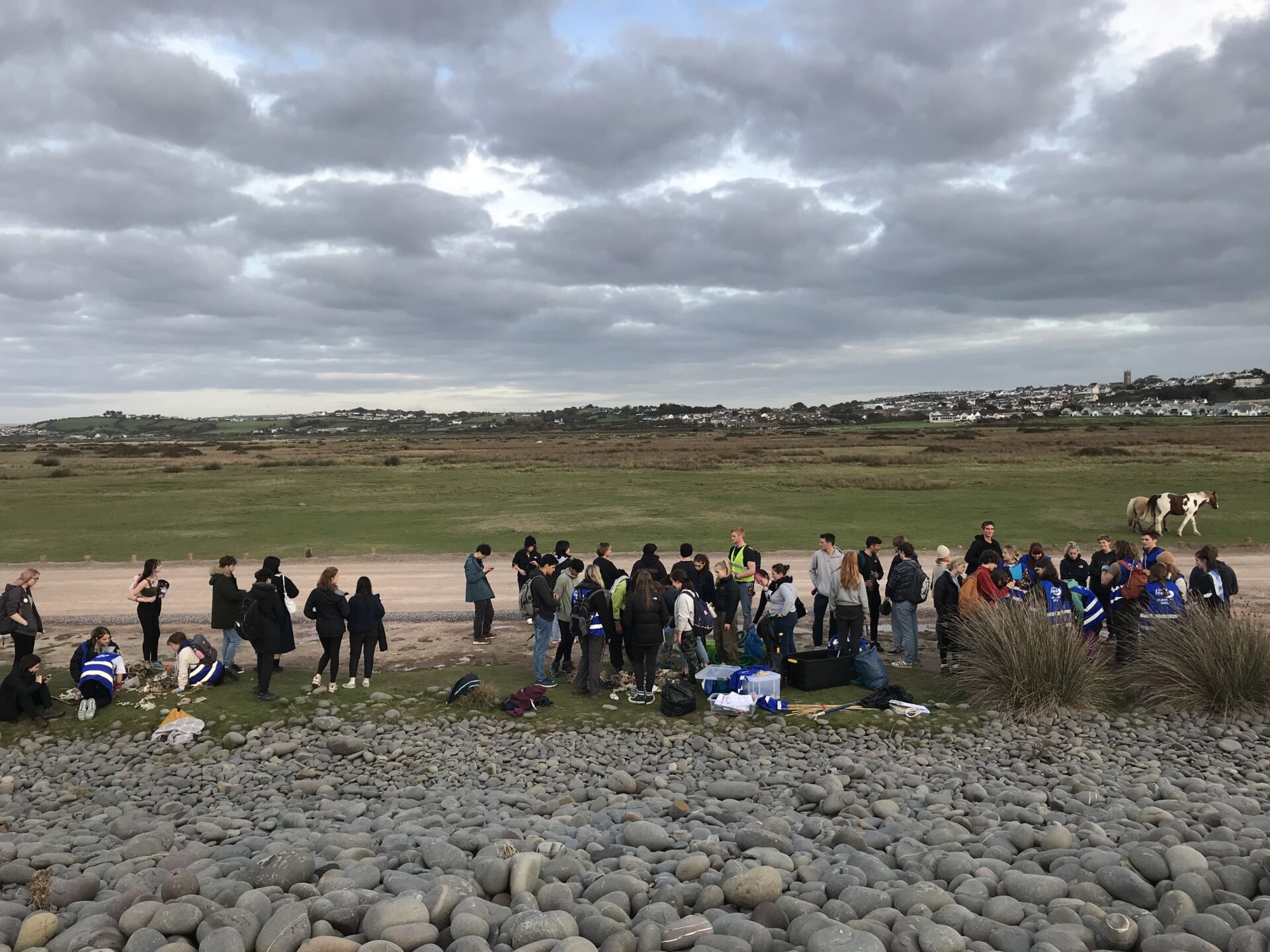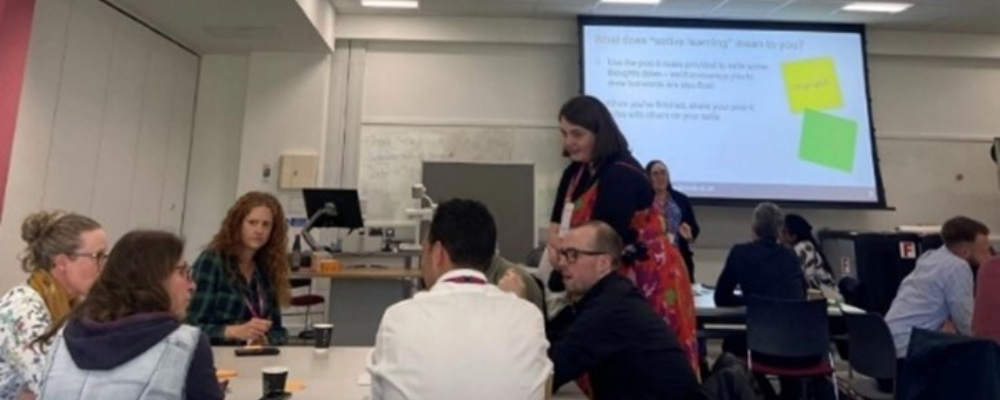
Can we support our students by embedding reflective practice?
Dr Emily Bell
Senior Lecturer in Biology, School of Biological Sciences, University of Bristol UK
“As a Senior Lecturer, I have witnessed increasing numbers of students struggling at university because they felt that they did not belong or lacked social connectedness with others. Many flourish and find a niche within their new environment, whereas others languish, struggling to adapt.”

I hesitated when first asked to speak at the 2025 Challenges and Solutions for Physiology Education meeting about supporting student transitions to university. Why would a room of physiologists want to hear from a zoologist? However, on consideration, I realise that the issues we all face as educators are not linked within the boundaries of our disciplines, but more to do with the world our students find themselves in when starting on their Higher Education journeys. It has become apparent that we can no longer simply teach our subject specialisms but need to adapt our teaching to support transitions and include key skill development that not only helps our students to be successful academically but also to build their resilience for life after graduation.
The importance of a successful transition into university
As a Senior Lecturer, I have witnessed increasing numbers of students struggling at university because they felt that they did not belong or lacked social connectedness with others. Many flourish and find a niche within their new environment, whereas others languish, struggling to adapt (Richardson et al., 2012; Valies 2017). Throughout their time at university, students experience multiple transition points such as excitement/anxiety about arriving at university for the first time, confusion on receiving feedback on pieces of work, homesickness, changing expectations between years, developing independence, and moving into the world of work or further education. Such moments are accompanied by peaks and troughs in wellbeing.
All transitions have a fundamental role to play in one’s university experience, but a successful transition into Higher Education is inextricably linked with a student’s success and likely retention at university (Tinto, 2004; Christie et al., 2016). A multitude of stressors accompany students during this transition; for many, they must simultaneously make new friends, potentially live away from home for the first time, manage finances and develop new study skills (Parker et al., 2004; Richardson et al., 2012). Without mastery of such skills, students can become overwhelmed and feel as though they do not belong at university. It is therefore unsurprising that universities have worked tirelessly to embed interventions to support student transition and wellbeing. But which interventions are working best, and do we constantly need to change these for successive generations of students?
Changing profiles of the modern student?
During the last decade, global concerns have been raised regarding the mental health and wellbeing of students (Macaskill, 2013). At the University of Bristol 2020 Wellbeing Conference, Dr Dominique Thompson asked the question “Has student mental health in the 21st century reached a perfect storm?”. By the end of the conference, she had successfully made me believe the answer to this question was yes. Since 2007, there has been a 5-fold increase in student disclosure of mental health conditions to universities (Gunnet et al., 2018; Lipson et al., 2019). Despite some of these numbers being due to increased reporting, they do represent a general decline in the mental health of university students. A multitude of factors might have impacted the behaviours of this current generation.
Globally, there is a rise in competitive individualism (Curran & Hill, 2019), alongside strong pressures on children in secondary education to achieve appropriate grades to get into university (Christie et al., 2013). This has led some academics to feel that students’ schooling is no longer preparing them to cope with the learning requirements of university, lacking critical thinking and deep learning skills (Vailes, 2017). The increase in university fees means some have a consumer-driven approach to education, expecting greater value for money (Tomlinson, 2017; Gupta et al., 2023). This may have been compounded by the commercialisation and marketisation of many institutions to survive (Bruce, 2022). These factors may have been intensified for students who are fearing for their futures because of global threats, not limited to the climate crisis (Pihkala, 2020), the COVID-19 pandemic (Bennet et al., 2022; Morona et al., 2023), the cost of living (Goodwin, 2022; Bryant, 2023), and global conflicts (Dijkstra et al., 2022). These issues are a lot for any human being to deal with, considering this, what can be done to help our students become resilient to face the future?

Can student transition be supported by embedding reflective practice into curricula?
In recent years, I have become increasingly interested in the role that embedding reflective practice and training into our curricula can play in supporting student transitions. Within educational settings, being a reflective learner allows students to move away from outcome-driven successes (such as a focus on grades) and helps transform learning from surface-level to deep-level (Andresen et al., 2020). As explained by Toros and Medar (2015), “Self-reflection is significant to students’ training as it enhances their personal and professional development in practice … increas[ing] professional growth and competence, [which] in turn increases the quality of social work” (p.89).
Many of the skills from reflection such as increased self-awareness, being adaptive to different learning environments, having better emotional understanding and regulation, being able to successfully learn and grow from failures and having better-coping strategies can all lead to a dramatic improvement in one’s resilience (e.g. Butler, 2010; Kang, 2016). Despite potential benefits, integrating practices into curricula comes with challenges, both in terms of colleagues’ perception of teaching softer skills and reluctance or lack of understanding from students regarding their benefits. For example, staff may fear how to assess such work in a standardised manner, and students may hold scepticism or embarrassment about sharing reflections with staff (Cheng, 2008).
Within the School of Biological Sciences at the University of Bristol, some staff took a step out of their comfort zones to formally embed reflective practice throughout our curricula. At the undergraduate level, I introduced Reflective Portfolio assessments as part of a mandatory first-year study skills unit. To support this, lecture material concerning the benefits of reflective practice and details on written models, such as ‘Gibb’s Reflective Cycle’ (Gibb’s1988), which can aid reflection, was introduced. The 2022/23 cohort permitted me to analyse their portfolios to explore their experiences and levels of academic self-efficacy (Elias & MacDonald, 2007) across their first term at university. Emerging themes included the importance of individual self-management regarding the requirements of becoming independent learners; developing their academic literacy; finding ways to develop a meaningful work-life balance; and the vital importance of one’s social environment in helping a successful transition beyond academic activities. This work is under development for publication, so look out for further details coming soon!
I now routinely share the findings of this study with current students, so they hear the voices of their peers regarding things they struggled with during their transitions. This has helped in managing student expectations of why we teach study skills integrated alongside biological content. Within a taught post-graduate degree, Professor Steve Simpson, Dr Dave Lawson, and I developed a purposely inward-facing unit focused on training students to evaluate and reflect upon their strengths and weaknesses; how to understand their values and then use these to promote inner resilience.
This was done through a three-day residential life skills retreat alongside workshops and assessments which focus on addressing emotional responses to global change, eco-anxiety and using reflective writing in professional and personal practice. Across our degree programmes, a student will now submit reflective pieces that consider their development of individual skills, ability to work with others, emotions and performance in tasks. Reading and marking reflective work from students is a privilege, as we can read in their own words how they are growing as learners and individuals through transformational educational experiences.

Adopting a holistic approach
To summarise, there appears to be a real mental health crisis in student communities and going forward, educators should look to find ways to adapt and improve our curriculum to support the transition into university by taking an evidence-based approach which considers the experiences of students and the social and academic factors that allow them to flourish and those which may cause them to languish. A multitude of factors have, and continue to, influence the modern student and their ability to successfully transition to university as flourishing learners.
The honesty and openness of our students here at the University of Bristol have helped us to understand more about their educational journey experiences. However, responsibilities for promoting change sit across multiple levels; the buck does not just stop with us as the educators in the room, but also with our students and with our institutions. We cannot tackle these issues alone but need to adopt a holistic approach, and embedding reflective practice could play an important role in this journey.
References
Bennett J et al. (2022). The impact of the COVID-19 pandemic on student mental health and wellbeing in UK university students: a multiyear cross-sectional analysis. Journal of Mental Health, 31:4, 597-604.
Bruce I. (2022). Universities in the twenty-first century: Structures, funding, management and governance. Contextualizing English for Academic Purposes in Higher Education: Politics, policies, and practices, 9-25.
Christie H et al. (2013). Direct entrants in transition: becoming independent learners. Studies in Higher Education, 38(4): 623-637.
Christie H et al. (2016). ‘It all just clicked’: a longitudinal perspective on transitions within university. Studies in Higher Education, 41(3), 478-490.
Curran T & Hill AP. (2019). Perfectionism is increasing over time: A meta-analysis of birth cohort differences from 1989 to 2016. Psychological Bulletin, 145(4), 410–429.
Elias SM & MacDonald S. (2007). Using past performance, proxy efficacy, and academic self‐efficacy to predict college performance. Journal of Applied Social Psychology, 37(11), 2518-2531.
Gibbs G (1988). Learning by Doing: A guide to teaching and learning methods. Further Education Unit. Oxford Polytechnic: Oxford.
Gunnell D et al. (2018). Adolescent mental health in crisis. Bmj, 361.
Gupta A et al. (2025). Higher education students as consumers: a cross-country comparative analysis of students’ views. Compare: A Journal of Comparative and International Education, 55(2), 174-191.
Lipson SK et al. (2019). Increased rates of mental health service utilization by US college students: 10-year population-level trends (2007–2017). Psychiatric Services, 70(1), 60–63.
Macaskill A. (2013). The mental health of university students in the United Kingdom. British Journal of Guidance & Counselling, 41(4), 426-441.
Morona A et al. (2023). The ‘guinea pig’ generation: How the pandemic shaped this year’s college freshmen. Open Campus Media NRP. https://www.npr.org/2023/02/01/1143051934/the-guinea-pig-generation-how-the-pandemic-shaped-this-years-college-freshmen [Last accessed 01/02/23].
Parker JD et al. (2004). Emotional intelligence and academic success: Examining the transition from high school to university. Personality and Individual Differences, 36(1), 163-172.
Pihkala P. (2020). Eco-anxiety and environmental education. Sustainability, 12(23), 10149.
Richardson A et al. (2012). Thriving or just surviving? Exploring student strategies for a smoother transition to university. A Practice Report. Student Success, 3(2), 87-93.
Tinto V. (2004). Student Retention and Graduation: Facing the Truth, Living with the Consequences. Occasional Paper 1. Pell Institute for the Study of Opportunity in Higher Education.
Tomlinson M. (2017). Student perceptions of themselves as ‘consumers’ of higher education. British Journal of Sociology of Education, 38(4), 450-467.
Toros K & Medar M. (2015). Social work students’ thoughts on self-reflection: A qualitative study based on reflective journaling. International Journal of Humanities and Social Science, 5(3), 89-96.
Vailes F. (2017). The flourishing student. Every tutor’s guide to promoting mental health, well-being and resilience in Higher Education. Practical Inspiration Publishing.



